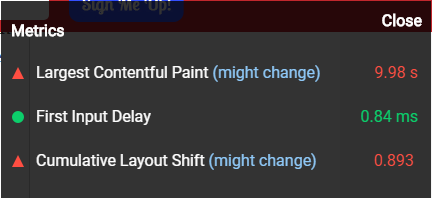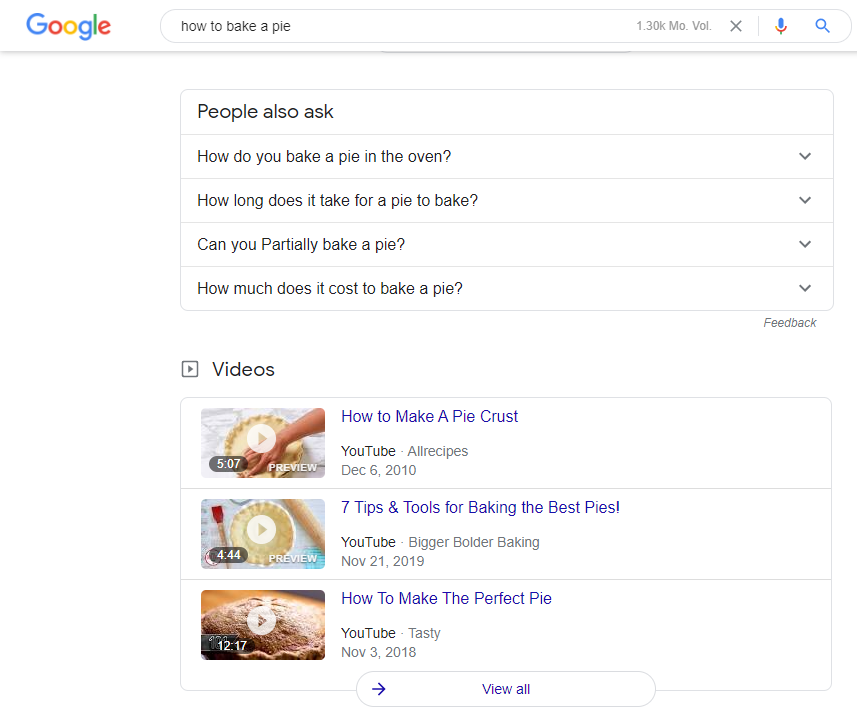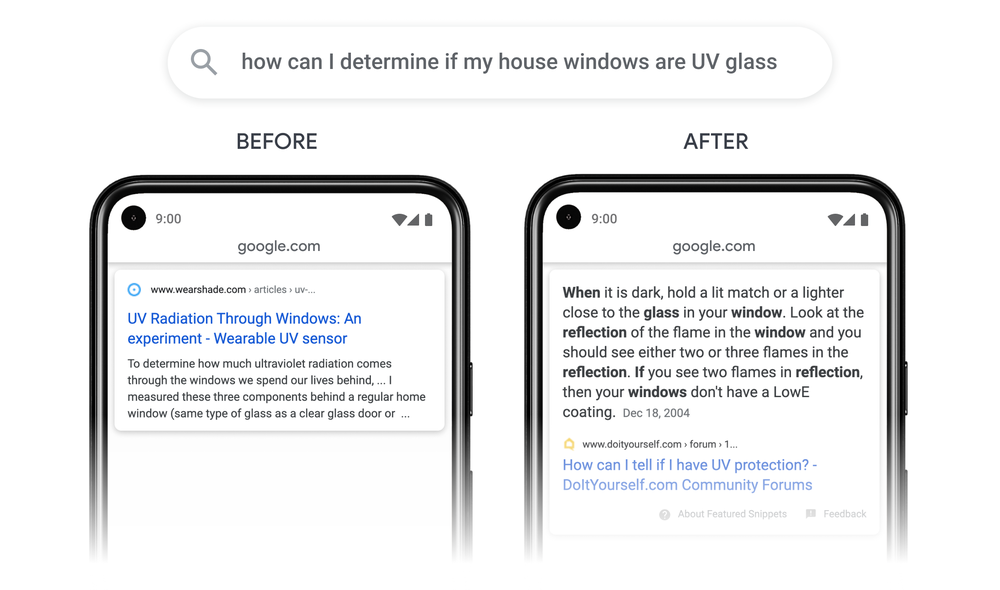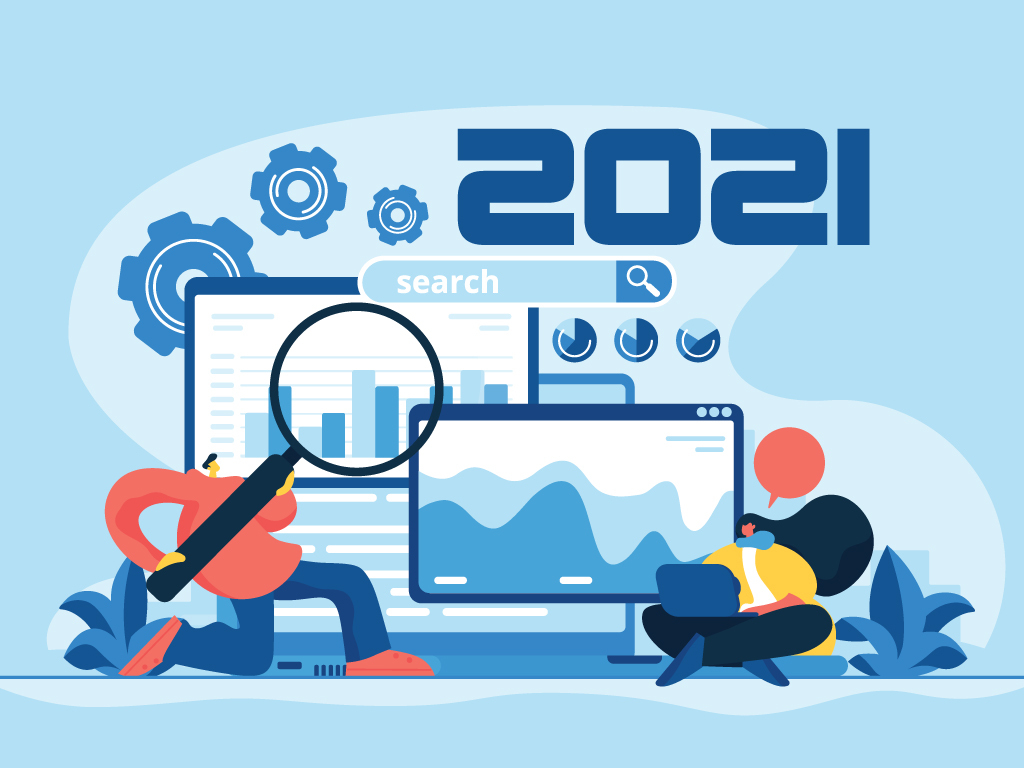SEO in 2021: 7 Factors you Should Prepare For
2020 was a year full of anxiety and uncertainty. There was so much going on around the world that it also affected the way how people search. With the year 2020 now ending, it is now time for us to look forward and prepare for what’s to come in 2021.
It is no secret that SEO is an ever-changing game. From the words of Prabhakar Raghavan, Google’s Head of Search: “Search is never a solved problem”. That is why Google continues to innovate and we SEOs should do the same.
2021 is going to be an exciting year for SEO and the best time to optimize is now. Here are the things that you should prepare for SEO in 2021.
Optimizing for Core Web Vitals and Page Experience
Google’s announcement of the two new ranking factors, Core Web Vitals and Page Experience, last May was one of the biggest announcements they had in recent years. They then announced in November that these two new ranking factors will be integrated into the algorithm by May 2021.
Most of the things that make up Page Experience are already part of the current algorithm. What Google did is take all of these ranking factors such as speed, mobile-friendliness, security, etc., and group them together to have a holistic view of what provides users with the best user experience.

The other ranking factor, Core Web Vitals, is made up of three metrics namely: Largest Contentful Paint, First Input Delay, and Cumulative Layout Shift. These three metrics deal with the overall performance of a webpage such as how long does it take before a user can interact with the page or how long does it take for the largest image to load. According to Google, the Core Web Vitals will continue to evolve throughout the years but for now, these three metrics are where SEOs should focus on.
For a full guide on each metric of the Core Web Vitals and Page Experience, check out these guides that we have published:
Largest Contentful Paint (LCP)
Search Intent is More Important than Ever
Search intent is not a new concept to SEO but 2021 is really the time where you should go all-in on it. One of the reasons why Google continues to dominate the search market is its consistent drive to accomplish its goal of providing users the most relevant search results and it has always been that way.
For Google, content is king and I believe it will always be king. But writing content for the sake of ranking for a target keyword is meaningless anymore. The focus of Search Intent is to provide content that is actually relevant to users. This gives meaning and purpose to creating content because many are tired of hearing the generic advice to create “high-quality” content all the time. So what is search intent and what type of content should you produce?
It is quite a simple concept to understand but can be difficult to execute. Search intent is the reason behind a user’s search. A better way of explaining it is with a question: “what does the user expect to see when they search this keyword”.
Search intent also has 4 types: informational, transactional, commercial, and navigational.
The question now is how do you know what is the right intent of a specific keyword. Well, ask Google. Search for the keyword you are targeting and check what Google is rewarding. The next step is to produce a better article than what your competitors have.
Going into 2021, search intent should be the focal point of any content strategy. Gone are the days where articles that only have keyword density in mind dominate the search results. Users should always benefit from content that they get from Google and so we SEOs should always keep in mind what’s good for users.
Video Content

Last October 2020, Google launched a video on its official YouTube channel highlighting the improvements that they made in search throughout the year. One of the highlights is how Google is now able to automatically tag and identify key moments on videos using AI without creators having to manually tag them.
This helps users save time when searching. When they click on a video from the search results, instead of having to scroll through the whole video, Google automatically directs them to what they are looking for.
According to Google, this will affect 10% of the search results by the end of 2020 and we can expect that they will continue to work on this in the coming year.
You can upload videos on your website and other platforms but YouTube is still the way to go if you want to utilize video content in the search results. According to a study, 83% of videos in the search results are from YouTube. It is not surprising considering YouTube is owned by Google.
Still, video content on YouTube is not yet explored by many digital marketers and it should be something that you should look into in 2021. It is clear that searchers prefer visual results more and more and with Google’s AI making it more convenient for them, traffic from video results is becoming more valuable and a better way of engaging with your target audience.
BERT Affects all Searches
When Google introduced the Bidirectional Encoder Representations from Transformers, better known as BERT, back in 2019, SEOs were quick to try and find out how to optimize for it despite BERT only affecting 10% of search results that time. I also published an article regarding how BERT affects SEO and I highly suggest that you check that out as well.
In 2020, Google announced that BERT now affects 100% of English search results. However, take note that BERT is not a ranking factor or algorithm. BERT is a technique used by Google to better understand what a user is searching for in a specific query.
Experts and Google say that there is nothing really to optimize for because it does not affect how Google index and rank pages. But one thing to take note of is that BERT can be related to search intent. Since Google is able to understand user queries better, that means content that best answers the user’s query will be rewarded more. My advice, do not overthink how BERT will affect your website because it won’t. Instead, focus on creating content that has the right search intent with BERT in mind.
Game Changer: Passage Indexing
Passage Indexing was also one of the biggest announcements by Google in their Search on 2020 video that took the attention of the SEO industry. Basically, Google is now able to index passages/snippets of an article in the search results if it is related to a user’s query despite not being the main topic of the article.

This is another innovation by Google using its advanced AI. Many were confused on how it will affect Google’s crawling and indexing but Google made it clear that they will still index the whole page it’s just that their AI is now able to focus on different parts of the content, not just the main subject.
This is big news because it means there are more opportunities to rank for when writing an article, especially long-form content. I mentioned in the article summarizing Google’s Search in 2020 that optimizing for passage indexing is similar to how you would optimize for Featured Snippets. The idea is to properly segment your content to make it easier for Google to understand and index.
Although passage indexing will only affect about 7% of search results by next year, I predict that it will be big in the years to come.
Subtopics
Google is looking to further diversify search results for broad terms using their advanced AI to understand subtopics. It was also announced in the Search in 2020 YouTube video and was briefly explained.
When a user searches for a broad term for example “computer”, Google is now able to understand relevant subtopics related to computers such as gaming computers, office computers, computer peripherals, etc. then serve it to the user.
This gives more importance to the use of the topic cluster model. I highly recommend that you read the guide we published for the Topic Cluster Model to help plan your content strategy for next year.
Optimizing for Rich Results
It’s 2021 and no, structured data is still not a ranking factor but properly marking up your pages with schema is important as ever. Google is pushing more and more rich results in the search results and they are easily stealing the spotlight from the regular blue links we are accustomed to.
Rich Results are visually improved and more interactive search results in Google. Generally, Google uses structured data markups on pages to pull up data for rich results. Marking up your pages with schema markup will not guarantee that you’ll appear in rich results and technically, structured data is not required for you to appear in rich results, but marking up your pages boosts your chances.
The benefits of appearing in Rich Results are the same with Featured Snippets – higher click-through rate. And similar to Featured Snippets, you don’t necessarily have to be the top 1 in the search results to appear in rich results.
As of writing, these are the structured data types that are eligible for rich results in Google:
- Article
- Book
- Breadcrumb
- Carousel
- Course
- COVID-19 Announcements
- Critic review
- Dataset
- Employer Aggregate Rating
- Estimated Salary
- Event
- Fact Check
- FAQ
- Home Activities
- How-to
- Image License
- Job Posting
- Job Training
- Local Business
- Logo
- Movie
- Product
- Q&A
- Recipe
- Review Snippet
- Sitelinks search box
- Software app
- Speakable
- Subscription and paywalled content
- Video
Google will continue to update this list as they are also working with Schema.org to improve structured data on the web. You should frequently check Google’s documentation on structured data to keep updated.
Key Takeaways
If you notice, half of what I talked about are things that were mentioned are related to Google’s AI technology and features. However, at the end of the day, users are the most important and everything that you do should be beneficial to them if you truly want to be successful for SEO in 2021.
I believe that 2021 will be an exciting year for SEO and also a busy year with all the new innovations we’ll have to think about and optimizations we’ll be doing. While there are factors that are highlighted such as those that I talked about in this article, keep in mind that SEO should always be holistic. You can focus and prioritize these new things that are to come in 2021 but do not leave other SEO factors behind.
